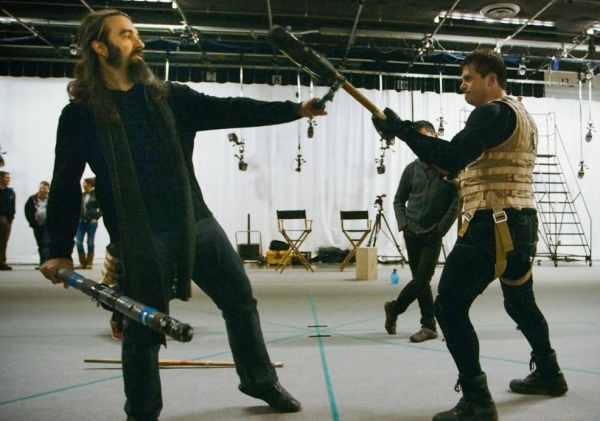It’s easy to forget that products of daily life, like video games, are the culmination of countless hours of work and meticulous design undertaken by teams as small as one person and as large as an entire company. Playing Hard – The Game Just Got Real, directed by Jean-Simon Chartier, delves into the minutiae of creating a video game.
Video game giant Ubisoft Montreal’s hit title For Honor sold three million copies in the first 10 days following the its release in Feb. 2017 and continues to retain a dedicated player base. With a large development team, the game represents a collective effort totalling millions of work hours. Focusing heavily on immersive third-person combat between online players on Xbox One, PC and PS4, For Honor depicts a tale of warfare over territory and resources between three powerful clans: knights, vikings and samurai.
Moreover, hidden inside the game lies an intense story about personal sacrifices in the pursuit of a dream. The protagonists: Jason VandenBerghe, creative director and eccentric visionary seeking to realize his passion; Stéphane Cardin, seasoned producer in charge of leading the project through endless obstacles; and Luc Duchaine, brand director on whose shoulders rests the marketing success of the entire enterprise.
The creative process is far from smooth, with shifting requirements forcing content to be cut and VandenBerghe’s demands becoming increasingly abrasive. The tale of For Honor’s development progresses like a play, complete with conflict, aspirations, and adversity. There is no end to the pressure and Chartier does not shy away from depicting each individual’s personal struggles.
The video game industry has a close relationship with violence given its simulated, lifelike conflict. Video game developers often feel responsible for addressing ethical dilemmas in their work. In a particularly touching scene, VandenBerghe learns of the 2016 Orlando nightclub shooting and is moved to tears.
“There is a lot of hate in this world,” VandenBerghe said, adding that his game is meant to be “a tool against violence.”
“I think we all have to be conscious about the impact of what we’re doing, whether that be as filmmakers or video game creators,” Chartier said.
Nevertheless, Chartier believes that there could be a value in certain depictions of violence in the medium.
“There’s violence in video games just as there is violence in film,” Chartier said. “In the end, violence is part of the world in which we live […], so, people can live these things through something that is fictional and be able to understand more of themselves [in the real world….] There’s [also] been some studies on the impact of violence in video games, and some of those studies show that there is no link at all between violence in video games and violence in the real world.”
Indeed, current studies published this year in journals such as Molecular Psychiatry have concluded that video games, in fact, do not promote aggression, neither in the short or the long-term.
Ultimately, though, Playing Hard’s underlying message concerns itself with the way the industry treats individuals.
“I think we see this industry as being very savage […], but I think
is not really about those big corporations,” Chartier said. “It’s about individuals that are passionate about something. There are human people behind these games, and at least when you play those games you have to take this into consideration.”
Playing Hard hit theatres on Sept. 21, and is a must-watch for anyone interested in game development at the scale of Ubisoft’s For Honor, which is currently the eighth most played game in the history of Steam, the world’s most popular online gaming platform.






